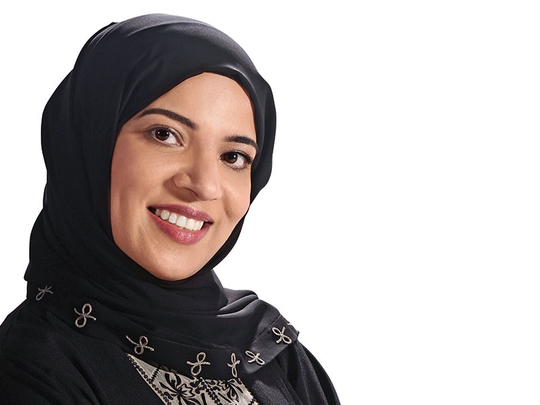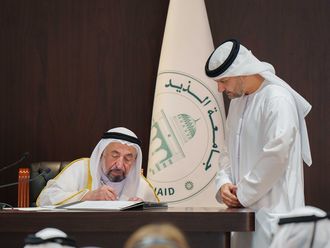
Dubai: From a very young age, the Emirati winner of the L’Oréal-Unesco Middle Eastern Fellowship Award, Habiba Al Safar, knew that she wanted to use her love of science to help her country.
The award, which aims to promote women in the field of scientific research, chose Habiba for her study on the identification of genetic and environmental risk factors associated with type two diabetes, a disease with a high prevalence in the UAE.
She was one of four winners selected for the award this year, who will each receive €20,000 (Dh91,968), to continue their research. The winners were awarded at a ceremony held at Zayed University on Thursday by Shaikha Lubna Bint Khalid Al Qasimi.
“As a child, I always loved science and since both my parents did not know how to read and write, they were very keen that I excel in my education and fulfil their dreams,” said Habiba, who is currently Assistant Professor in the Biomedical Engineering Department at Abu Dhabi’s Khalifa University of Science, Technology and Research.
At the age of 35, Habiba has 15 years’ experience working in labs, and this includes working as a forensic expert at the DNA Crime Laboratory at the Dubai Police General Headquarters.
“My passion for research started when I acquired my doctorate degree. I wanted to research something that will help my country so I looked for a disease that had a high prevalence in the UAE and found that diabetes here is among the highest in the world,” said Habibia who acquired her doctorate degree in Forensics and Medical Sciences from Western Australia.
Habiba said the first obstacle she faced was funding, for which she had to wait for eight months. Her second obstacle was that there was no Emirati family registrar in the UAE.
“After two years of searching, I finally found an Emirati family with 319 members and 66 conditions. I thought it was the perfect family so I started studying their genetics by acquiring their DNA samples.”
Habiba said she had to travel on one-day trips to collect the samples of family members living abroad. She also had to find different methods to collect the samples from the children of the family, who were resistant to drawing blood.
“When I finished the screening, I found that novel genes related to obesity are causing diabetes.”
After publishing the paper and finding her passion in research, she quit her job and became a professor. “It was an amazing experience to teach students and encourage them to major in science research while serving my country at the same time. Right now I am working on seven projects that include research on diabetes, cardiovascular disease and vitamin D.”
Habiba is also screening more families, and so far has compiled 4,500 samples from Emiratis and 32,000 samples from UAE residents who wish to be part of the registrar.
The researcher who dreams of building a research centre specialising in genetic diseases said she did not expect to win the award.
The three other winners of the award are Jasmeen Merzaban from Saudi Arabia, Nouf Al Shareef from Saudi Arabia and Najat Al Odaini from Yemen.












